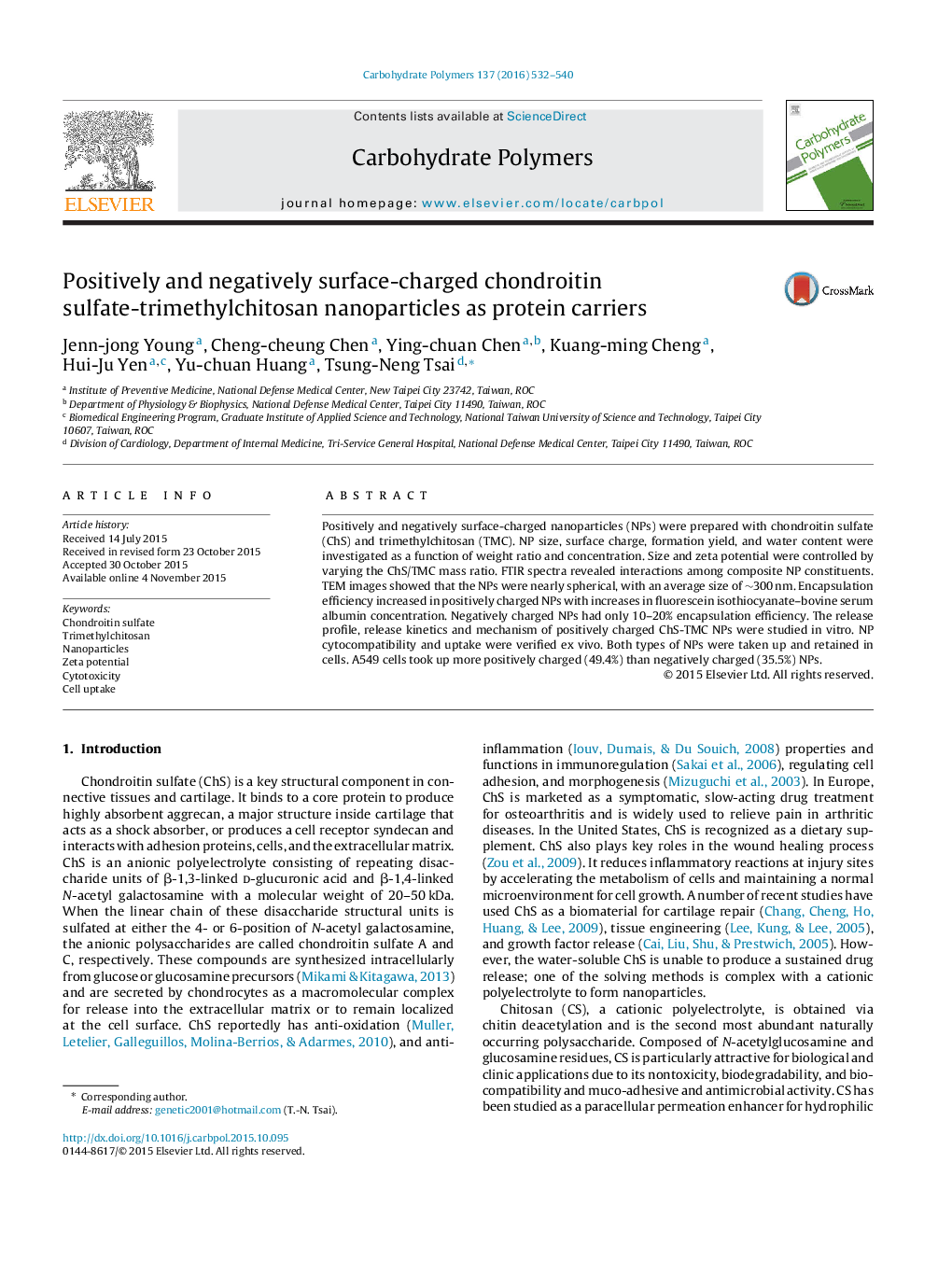| Article ID | Journal | Published Year | Pages | File Type |
|---|---|---|---|---|
| 1383195 | Carbohydrate Polymers | 2016 | 9 Pages |
•We developed a novel nanoparticular carrier system via polyelectrolyte complexation.•Nanoparticles (NPs) with positive and negative surface charge were prepared.•NPs are prepared in aqueous under extremely mild conditions and in a very short time.•Both charged NPs show cytocompatibility and were phagocytosed into cells.•Positively charged NPs had excellent capacity for entrapping anionic proteins.
Positively and negatively surface-charged nanoparticles (NPs) were prepared with chondroitin sulfate (ChS) and trimethylchitosan (TMC). NP size, surface charge, formation yield, and water content were investigated as a function of weight ratio and concentration. Size and zeta potential were controlled by varying the ChS/TMC mass ratio. FTIR spectra revealed interactions among composite NP constituents. TEM images showed that the NPs were nearly spherical, with an average size of ∼300 nm. Encapsulation efficiency increased in positively charged NPs with increases in fluorescein isothiocyanate–bovine serum albumin concentration. Negatively charged NPs had only 10–20% encapsulation efficiency. The release profile, release kinetics and mechanism of positively charged ChS-TMC NPs were studied in vitro. NP cytocompatibility and uptake were verified ex vivo. Both types of NPs were taken up and retained in cells. A549 cells took up more positively charged (49.4%) than negatively charged (35.5%) NPs.
